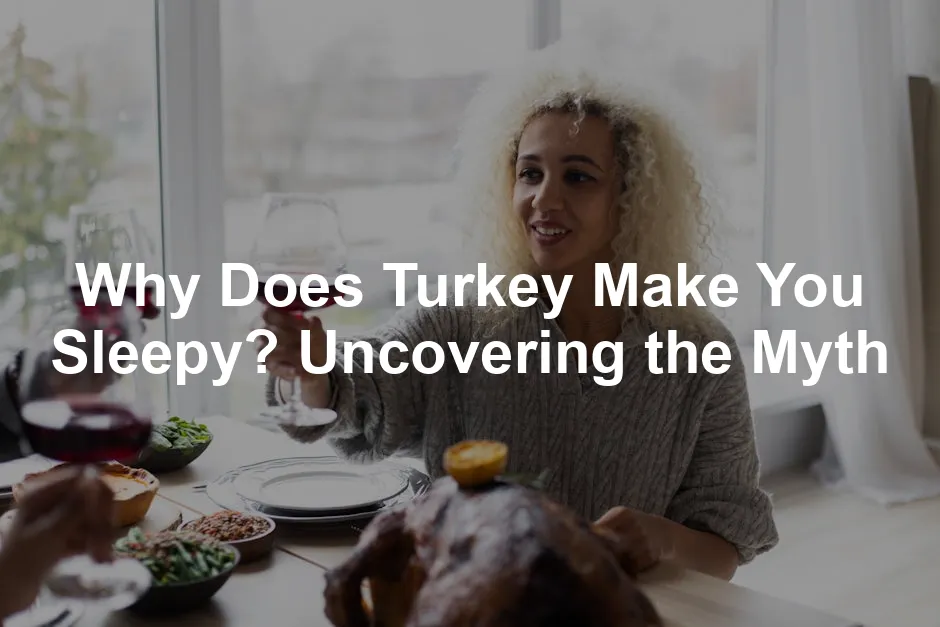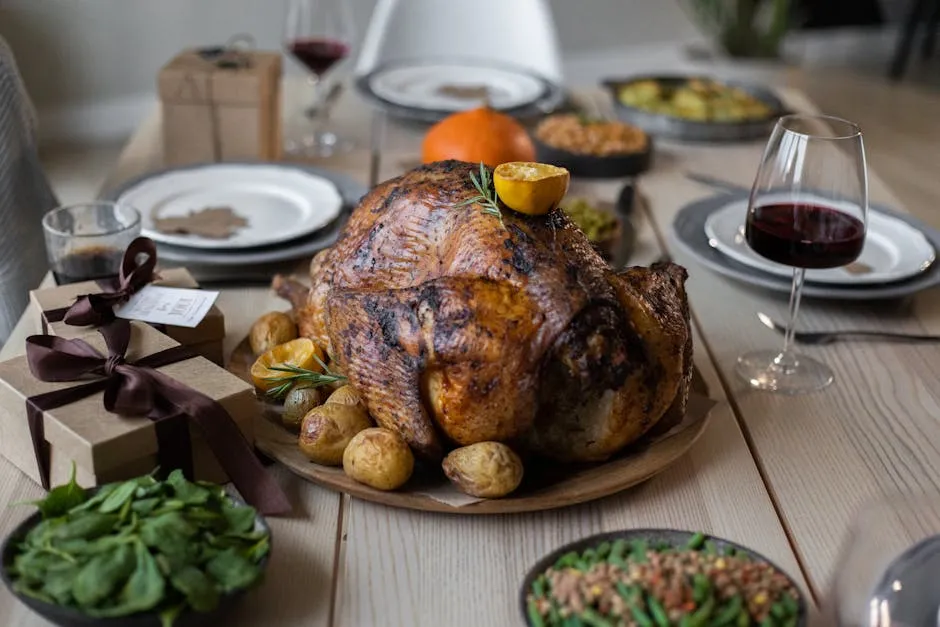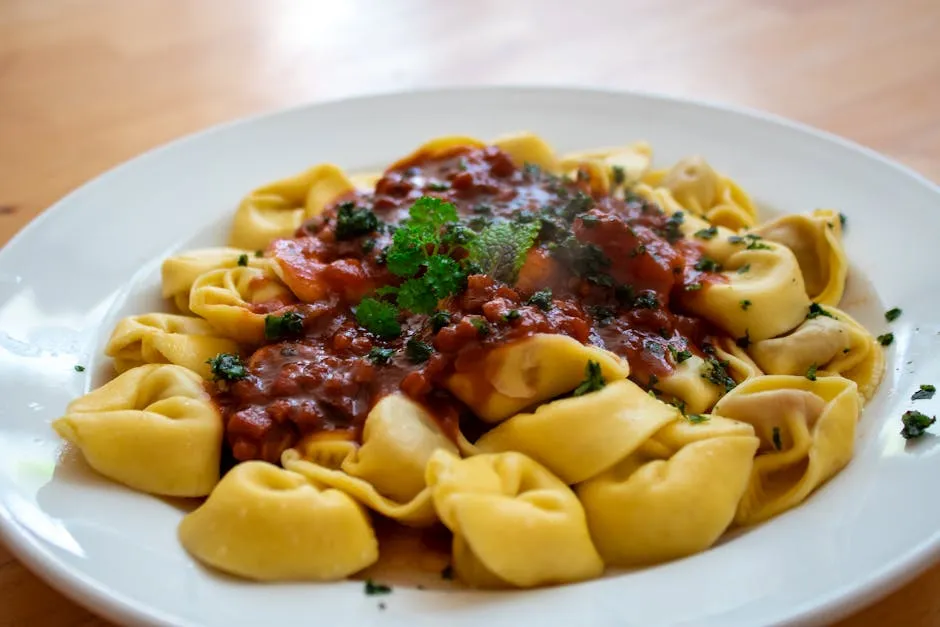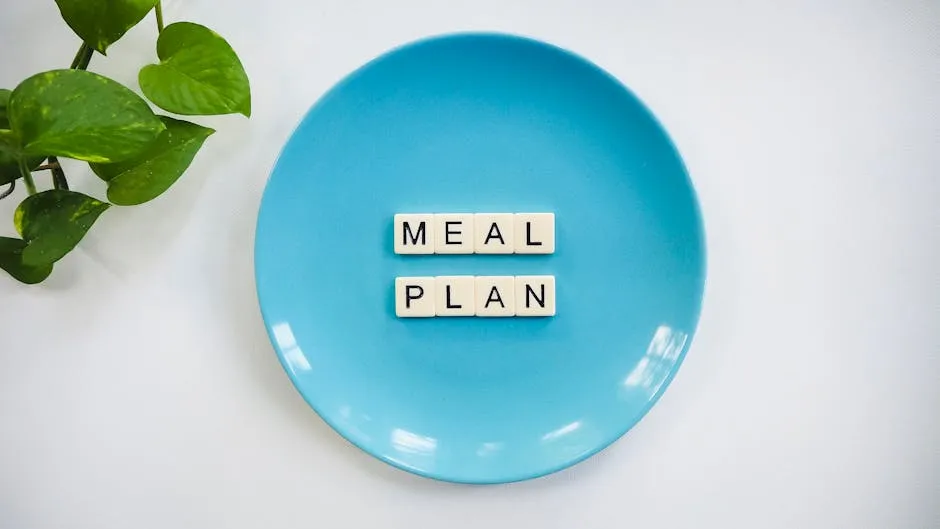
Why Does Turkey Make You Sleepy? Uncovering the Myth
Introduction
Many people believe that turkey makes you sleepy. This belief is especially prevalent during Thanksgiving feasts. After a hearty meal, the couch often beckons for a nap. But is turkey really the culprit behind our post-meal drowsiness? Let’s find out!
Summary and Overview
Turkey contains tryptophan, an essential amino acid linked to sleepiness. Tryptophan helps your body produce serotonin, which may promote relaxation. However, turkey isn’t the only source of this amino acid. In fact, foods like cheese and nuts contain more tryptophan than turkey.
While turkey does play a role, other factors contribute to that familiar fatigue. The sheer volume of food consumed during holiday meals, particularly high-carb options, can significantly impact alertness. Overeating, alcohol intake, and the stress of holiday preparations also take their toll.
Speaking of keeping your energy up, why not try some Tryptophan Supplements? They can help support your mood and relaxation, perfect for those post-feast slumbers!
In the following sections, we’ll explore these factors in detail, unraveling the complex reasons behind our post-Thanksgiving slumber.

The Science Behind Tryptophan
What is Tryptophan?
Tryptophan is an essential amino acid. This means your body cannot produce it, so you must obtain it from food. Tryptophan plays a crucial role in producing serotonin and melatonin. Serotonin helps regulate mood, while melatonin manages sleep cycles. When you eat tryptophan-rich foods, your body can convert this amino acid into these important compounds.
Besides turkey, many other foods also contain tryptophan. You can find it in dairy products like cheese and milk, as well as in chicken, fish, nuts, and soy products. So, while turkey is a good source, it’s not the only player in the game.
If you’re looking to spice up your cooking with some delicious recipes, check out this Turkey Cookbook. It’s packed with ideas that can make your holiday meals even more delightful!
Does Turkey Really Have More Tryptophan?
Turkey is often blamed for post-meal sleepiness due to its tryptophan content. However, turkey doesn’t have significantly more tryptophan than other proteins. In fact, chicken, pork, and even dairy products often contain higher levels. For example, a 3-ounce serving of turkey has about 240 milligrams of tryptophan. In comparison, chicken can have nearly 300 milligrams per serving.
Many nuts and seeds also pack a punch with tryptophan. For instance, pumpkin seeds and peanuts often surpass turkey in tryptophan content. This common belief that turkey is uniquely high in tryptophan is misleading. It’s important to recognize that while turkey does contain some tryptophan, it’s not the sole reason for your post-feast drowsiness.
To keep your energy levels up, consider snacking on a Pumpkin Seed Snacks. They are not only delicious but also a great source of tryptophan!

Factors Contributing to Post-Meal Sleepiness
Overeating and Meal Size
After a big holiday meal, many people feel sleepy. This sensation often comes from overeating. When you consume a large meal, your body requires extra energy for digestion. Blood flow increases to your stomach, pulling it away from your brain. As a result, your brain receives less oxygen and nutrients, making you feel tired. The type of food matters too. High-fat and high-carb meals are heavier on your system. They can slow down digestion even further, contributing to that familiar post-meal slump. To avoid this, try portion control and listen to your body’s hunger signals. Eating smaller portions can keep you alert and engaged during holiday festivities.
To help with portion control, consider using Portion Control Plates. They can make it easier to serve the right amount and avoid that post-meal slump!
The Role of Carbohydrates
Carbohydrates play a significant role in post-meal drowsiness. During Thanksgiving, we often indulge in high-carb dishes like stuffing, mashed potatoes, and pie. These foods can cause a spike in blood sugar levels. Initially, this surge provides a quick energy boost. However, as blood sugar levels drop, you may experience fatigue. This phenomenon occurs because the body releases insulin to manage the increased glucose. Insulin allows tryptophan from your meal to enter the brain more easily. Consequently, serotonin and melatonin production rises, leading to feelings of sleepiness. To combat this, consider balancing your carbohydrate intake with protein and fiber-rich foods.

Alcohol Consumption
Alcohol consumption can significantly contribute to feelings of drowsiness after a meal. Many holiday gatherings feature wine or cocktails, which have sedative effects. Alcohol interacts with your central nervous system, leading to relaxation. When combined with a heavy meal, this effect can intensify, making you feel even sleepier. The depressant nature of alcohol can reduce alertness and impair cognitive function. It’s essential to stay mindful of your alcohol intake during celebrations. Opt for lighter drinks or limit your consumption. Staying hydrated with water can also help maintain your energy levels.
If you’re looking for a refreshing non-alcoholic option, try a Non-Alcoholic Wine. It’s a delightful way to enjoy the festivities without the drowsiness!

Stress and Holiday Dynamics
Holiday gatherings often come with a whirlwind of stress. From planning the perfect meal to managing family dynamics, the pressure can be overwhelming. This stress can sap your energy even before the feast begins. The excitement and tension may lead to mental fatigue, making you more susceptible to feeling tired after eating.
Additionally, the psychological factors at play can’t be ignored. After indulging in a big meal, your body shifts into a relaxed state. This relaxation can trigger feelings of drowsiness. The combination of stress and the body’s natural response to a heavy meal creates the perfect storm for post-meal fatigue. So, it’s not just the turkey; it’s the entire holiday experience that can leave you ready for a nap.

How to Avoid Feeling Sleepy After Eating
Practical Tips to Stay Alert
Feeling sleepy after a big meal? You can take steps to stay alert. One effective strategy is to manage portion sizes. By serving yourself smaller amounts, you’ll help your body digest food more efficiently. Eating slowly gives your brain time to signal fullness, preventing overeating.
Hydration is crucial too. Drinking water before and during your meal can help keep energy levels up. After eating, consider engaging in light physical activity. A short walk can aid digestion and combat drowsiness. If you enjoy a drink, opt for non-alcoholic options like sparkling water or herbal tea. These alternatives can help maintain your alertness without the sedative effects of alcohol. By following these tips, you can enjoy your holiday meals without the post-meal slump.

Speaking of hydration, make sure to stay refreshed with a Reusable Water Bottle. It’s eco-friendly and will keep your hydration game strong!
Meal Planning for Alertness
To stay alert during holiday feasts, focus on balanced meals. Incorporate a mix of proteins, healthy fats, and fiber-rich vegetables. This combination helps stabilize blood sugar levels and reduces the risk of fatigue. Consider options like roasted turkey with quinoa and a colorful salad. These foods keep your energy steady, making it easier to enjoy family time.
Sleep hygiene also plays a vital role in how you feel during meals. In the days leading up to holiday gatherings, prioritize quality sleep. Aim for 7-8 hours each night to ensure your body is well-rested. Avoid late-night snacks too close to bedtime, as they can disrupt sleep cycles. By maintaining good sleep habits and planning balanced meals, you’ll feel more alert and engaged during your festivities.

For those nights when you need extra help, consider using a Sleep Mask to block out distractions. A good night’s sleep can work wonders for your alertness!
Conclusion
In summary, while turkey contains tryptophan, it’s not the only factor behind post-meal sleepiness. A mix of overeating, high-carb foods, and alcohol consumption also play significant roles. It’s important to remember that many elements contribute to that familiar drowsy feeling.
Mindful eating can help combat this fatigue. Enjoy your meals slowly and listen to your body. Implementing these strategies will help you stay awake and make the most of your holiday celebrations. So, savor every bite and keep that festive spirit alive!
FAQs
Does turkey contain tryptophan?
Turkey does contain tryptophan, but not in higher amounts than other foods. For instance, chicken and dairy products like cheese have comparable levels. A typical serving of turkey has about 240 milligrams of tryptophan, while a serving of chicken can exceed 300 milligrams.
Can eating turkey alone make you sleepy?
Eating turkey alone isn’t enough to cause sleepiness. It’s the combination of a large meal, high carbohydrates, and often alcohol that leads to drowsiness. So, turkey isn’t solely to blame for that post-dinner nap.
What other foods can contribute to post-meal drowsiness?
Many high-carb and sugary foods can cause fatigue. Dishes like mashed potatoes, stuffing, and desserts can spike blood sugar levels, leading to a crash. Foods rich in fat can also slow digestion, contributing to tiredness.
How can I stay awake after a big meal?
You can stay alert by managing portion sizes and pacing your eating. Drinking water before and during the meal helps too. After eating, light physical activity, like taking a walk, can promote digestion and keep you awake.
Is there any truth to the turkey myth during other times of the year?
The turkey myth is often repeated outside Thanksgiving. While turkey contains tryptophan, it’s not unique in this regard. Other meats and foods also contribute to drowsiness, so the myth persists regardless of the season.
If you’re curious about the effects of nuts on sleepiness, you can explore why they are also significant in this context by reading about why do wire nuts melt.
Please let us know what you think about our content by leaving a comment down below!
Thank you for reading till here 🙂
All images from Pexels




